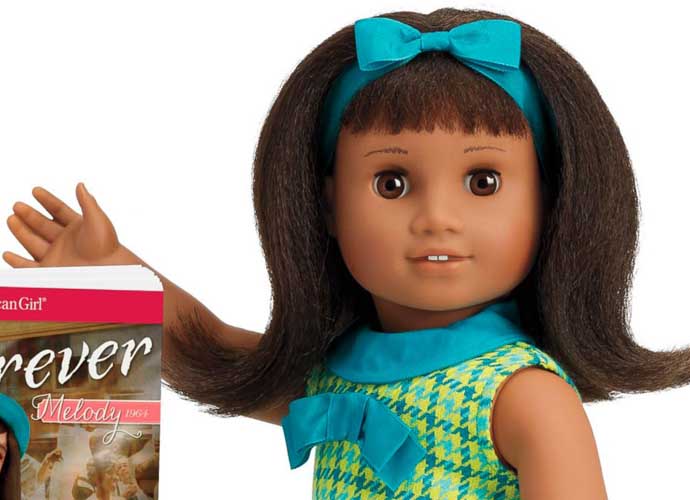American Girl Announces Melody, New African-American Doll, To Celebrate Civil Rights
For its 30th anniversary of Black History Month, American Girl has announced that this summer it will release a new historical doll: Melody Ellison. Melody will be the company’s third African American doll in its BeForever historical line, a doll from civil rights era Detroit.
“While it’s easy to call us a doll company,” said Julia Prohaska, vice president of marketing, to CBS News, “We’ve always seen ourselves as storytellers.”
American Girl dolls are known for coming with books about the dolls’ stories, often providing rich history lessons with their iconic toy.
“We put at the center stories and advice for girls that really are intended to help them be their personal best,” explained Prohaska, going on to say, “I think the doll industry has a very heavy responsibility in reflecting what is true about our society.”
Not everyone, however, thinks that the American Girl dolls live up to their duty. In 2014, the company was criticized for discontinuing four characters, two of them minority characters, one African-American and the other the only Asian-American American Girl doll. Of the 20 character dolls American Girl has created, only three have been African-American. The first African-American doll was Addy in 1993, a child slave who had escaped to freedom.
“When we launched Addy, the universal feeling was that we needed to address the very difficult topic of slavery before we addressed any other experience in black history,” said Prohaska.
But as the Paris Review points out, until 1998, Addy, the runaway slave, was the only perception of a strong African American, or any non-white, woman in America:
“For seventeen years, Addy was the only black historical doll; she was the only nonwhite doll until 1998. If you were a white girl who wanted a historical doll who look like you, you could imagine yourself in Samantha’s Victorian home or with Kirsten, weathering life on the prairie. If you were a black girl, you could only picture yourself as a runaway slave,” wrote Brit Bennet last May.
Maybe Melody is the beginning of a rectification of this situation. Melody will be a nine-year-old African-American in the 1960s who loves to sing and use her voice to make a difference, representing one of the most arguably important periods for African Americans in U.S. history.
Although Prohaska said in response to why they have waited so long to put out a civil rights doll, “We’re not looking to address critical demand. We’re looking to tell stories in the most authentic and genuine way we possibly can.”
American Girl has formed a six-panel advisory board of historians, educators and civil rights activists which lead designer Heather Northrop and her team worked with in order to ensure the authenticity of Melody’s story. Northrop explained how she even consulted the panel several times to make sure Melody’s hair was just right.
American Girl has been working to regenerate interest in the company as sales have dropped over 9% since 2013. In addition to new dolls like Melody, Amercan Girl launched a new campaign last year for girls to pledge to empower each other (through American Girl), so it can last for another 30 years — 50,000 have pledged so far.
Find Melody in stores this summer for $115 (and if you decide to buy all her accessories, including a record studio which plays Motown music, expect to spend nearly $900).
Get The American Girl Grace Doll Here!
RELATED ARTICLES
Get the most-revealing celebrity conversations with the uInterview podcast!




 Click here for the Most Popular Celebrity Instagrams Of 2015 Slideshow
Click here for the Most Popular Celebrity Instagrams Of 2015 Slideshow



Leave a comment